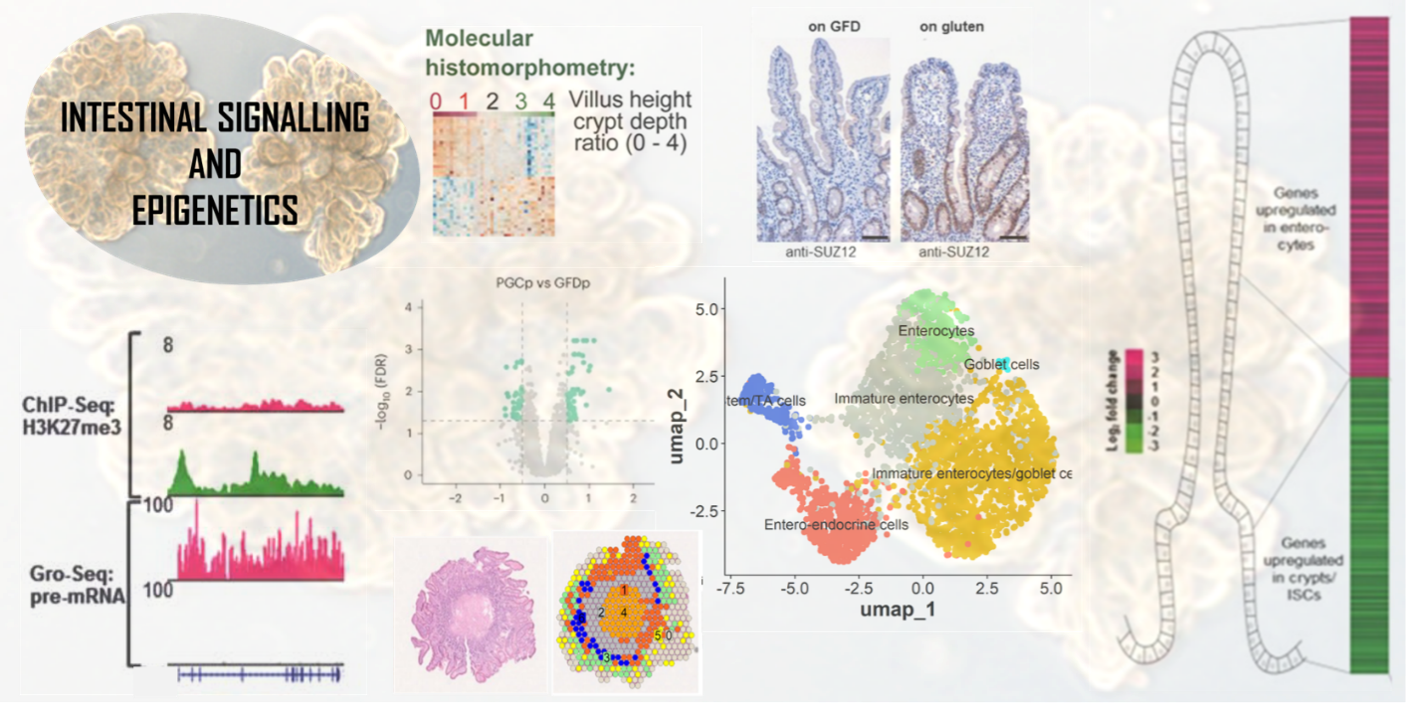The Intestinal Signalling and Epigenetics (ISE) group
Group leader

Our Research focus
The Intestinal Signalling and Epigenetics (ISE) group focuses on understanding the signalling mechanisms that maintain tissue homeostasis in the intestinal epithelium. We investigate how epigenetic mechanisms translate these signals into altered gene expression and cell differentiation. Our research also explores the remarkable cell plasticity of the intestinal epithelium and the impact of metabolic cues on homeostasis through epigenetic histone modifications. Additionally, we study endocrine signalling and the molecular mechanisms behind the secretion of small intestinal peptide hormones, examining their roles in glycaemic and satiety control. Finally, our group delves into the molecular pathogenesis of celiac disease and the influence of environmental factors, such as viruses, on the loss of oral tolerance to dietary gluten.
We utilize intestinal organoid models, transgenic animals, and high-throughput genome-wide, spatial, and single-cell methods in our research. We also collaborate with the drug development industry, offering advanced molecular tools to assess drug efficacy in celiac disease trials. Our ultimate goal is to develop applicable molecular tools for evaluating intestinal health and to identify biological targets within various signalling pathways for drug development, aiming to treat celiac disease, diabesity, and related metabolic disorders.
